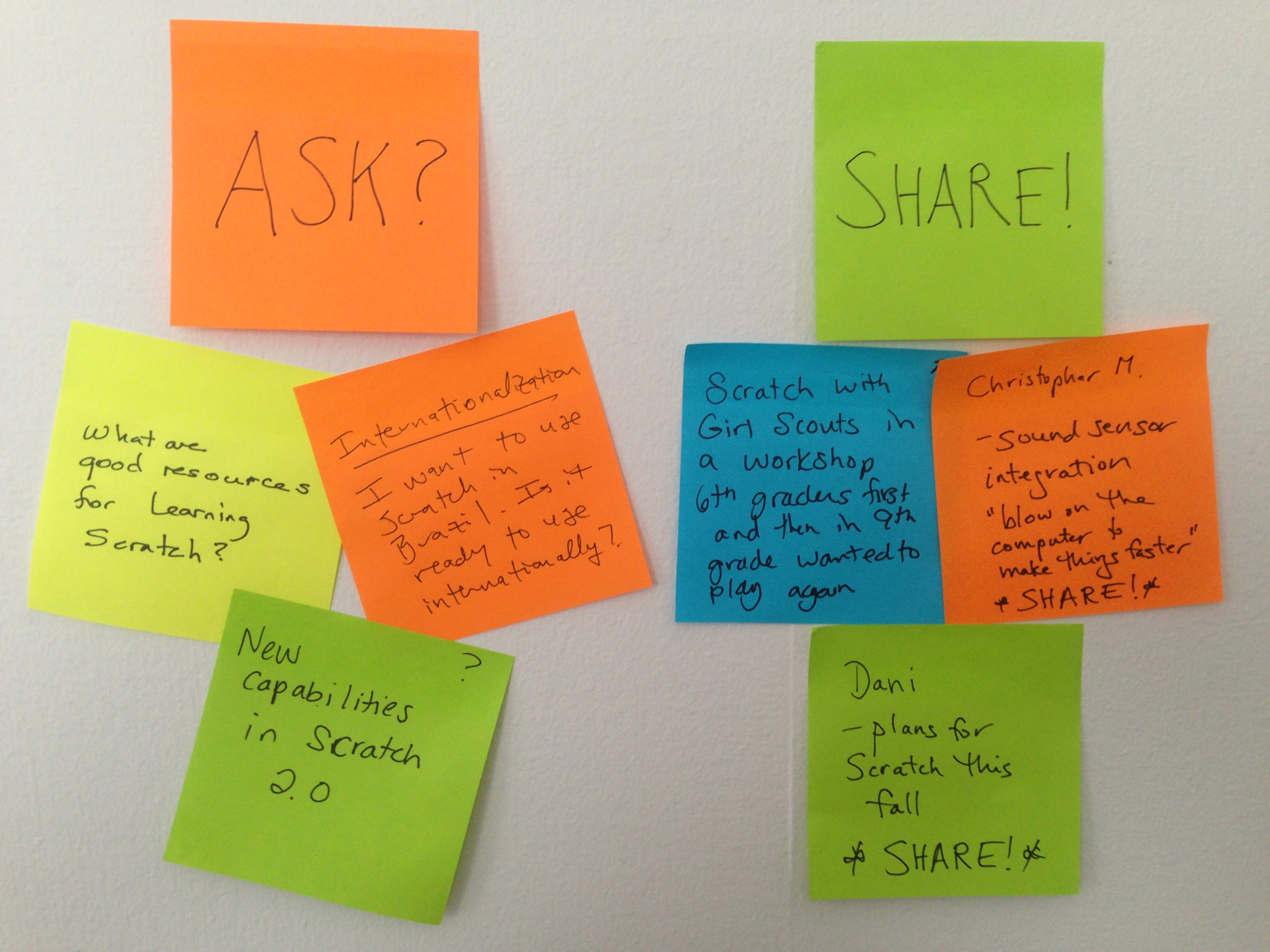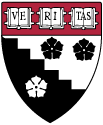Scratch at SIGCSE 2013: Reflections, Presentation Slides, and Discussion Notes
We had an amazing time meeting new people, talking with educators, and helping people learn more about Scratch and ScratchEd at the SIGCSE 2013 Conference, which took place March 6-9 in Denver, Colorado. Scratch was represented at a variety of sessions, including hands-on workshops, paper presentations, posters, special sessions, and a breakfast event. The ScratchEd Team helped to host two interactive sessions during the event. The first, was a special session on Friday afternoon: "Stories from the Scratch Community: Connecting with Ideas, Interests, and People."
.png)
The session was hosted by Karen Brennan, Mitch Resnick, three Scratch educators, and two young students from local Denver schools who presented their Scratch projects with the group. The 75-minute session consisted of a short presentation from the hosting panel, followed by an intimate Q&A discussion with the approximately fifty conference participants in attendance. The presentation slides are attached below.

The next morning, a Scratch Breakfast event took place in the Sheraton Downtown Denver's large ballroom space. Karen Brennan, Mitch Resnick, John Maloney, Janet Dee, and Ingrid Gustafson facilitated the session, organizing a large group discussion around asks (questions, confusions, wonderings) and shares (experiences, ideas, plans), which participants notated on sticky notes. Here is what was asked and shared:
Ask?
- What are new features of Scratch 2.0?
- When is 2.0 coming out of beta and what educational materials will come with it (especially for HS)?
- Is Scratch 2.0 going to be ready for Fall?
- Can we use Scratch in intro of college CS class (ie: before Java, Scratch as warm-up in a college-level CS1 class, CS0 course at university)?
- What are some ideas for advanced concepts (lists, arrays, data structures)?
- What about the rural communities that do not have internet access?
- What to do about elementary school where students are not allowed to log in? Will there be a downloadable version?
- I want to use Scratch in Brazil. Will we have internationalization of Scratch?
- Is there a bitmap to vector conversion in new Scratch?
- Raspberry Pi and Scratch, what are the possibilities?
- Can I teach recursion with Scratch 2.0?
- Can I create functions with parameters?
- What does it mean to clone sprites?
- How does Scratch handle complex expressions? What about using the edit screen with so many blocks of code?
- What are good resources for learning Scratch (ie: a ten year-old at home)?
- How long does it take to learn 1.4 so you can teach it?
- What do we do about the clash between "Scratch culture" and "school culture"?
- What are Scratch resources for MS to HS (the software and materials sometimes feel too young for high school and university)?
- What is Scratch written in? How does that affect performance?
- Is there any way to "tag" programs in teh gallery to credit the author?
- Compare Scratch with Snap
- How do you transition from Scratch to text-based languages?
- Will Scratch work on iPhone?
- Why make Scratch Flash-based?
- What are best practices for learning cloning and other Scratch 2.0 features?
- How do people assess Scratch (especially in a university course)?
- What is the gallery tool like in Scratch 2.0?
- Would people be interested in a Scratch + Kinect workshop at SIGCSE next year?
Share!
- Non-profit tech camps for 4th-6th grade where students create a game in one week (techcorps.org in Columbus, OH)
- Scratch outreach (game camp with middle school)
- I've used Scratch in many different contexts (community college, outreach, summer bridges)
- Scratch with Girl Scouts in a workshop, 6th grade first and then in 9th grade because they wanted to play again
- Informal, mini competition in HS Intro to CS course
- Used BYOB to do DNA sequences
- Want Scratch as Intro to Programming/History of Programming (teaching Visual Basic) to learn about syntax for engagement/hook/fun
- Sound sensor integration ("blow on the computer to make things faster")
- Plans for using Scratch this fall

